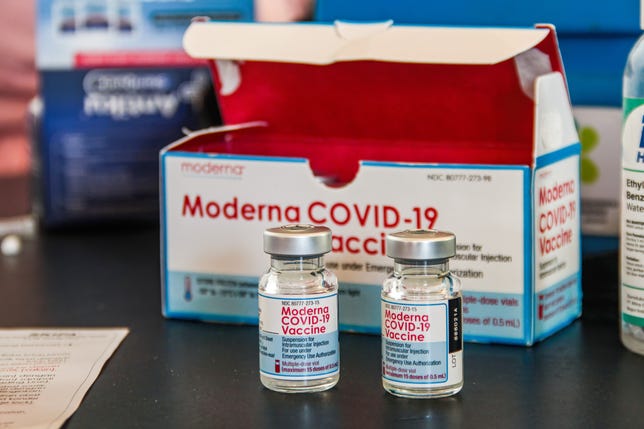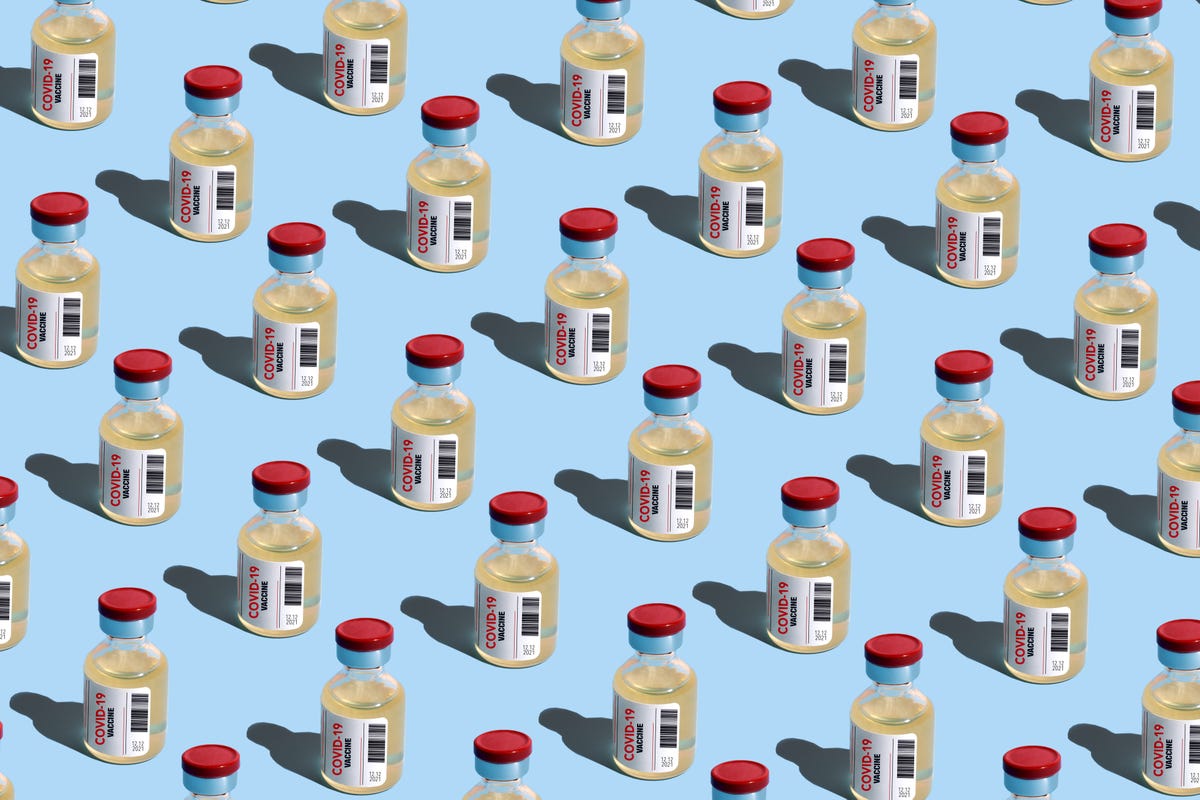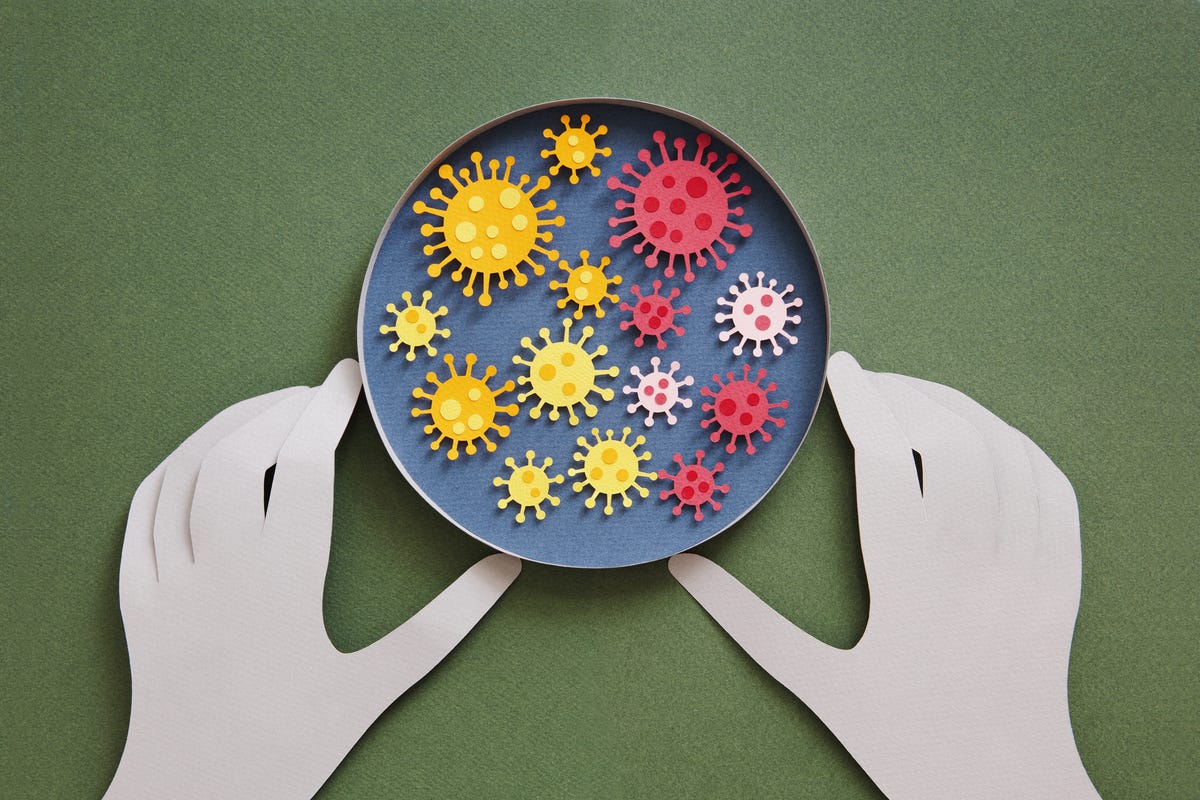COVID-19 Vaccines You Can Drink, Snort or Inhale Could Be the Future - CNET
What if you could drink your COVID-19 vaccine instead of rolling up your sleeve? No needle -- just a "swish and swallow," and your new immunity is down the hatch.
You might be able to within the next couple of years, as researchers expand their focus onto mucosal vaccines, which include nasal or inhaled vaccines as well as "swish and swallow" oral vaccines such as QYNDR, which completed its phase 1 clinical trial and is currently waiting on more funding to conduct the more detailed, advanced trials that could actually bring the vaccine to market.
The QYNDR vaccine is pronounced "kinder," because it's a softer way to deliver a vaccine, says Kyle Flanigan, founder of QYNDR's maker, US Specialty Formulations. Promising clinical trial results from New Zealand offer hope that QYNDR will be a viable option for protection against the string of COVID-19 variants circulating. The findings have not been peer-reviewed yet.
"It's really challenging to have a vaccine survive making it through your digestive system," Flanigan said. "We were able to figure out how to get a vaccine past the stomach and into the gut and have it be effective and induce the appropriate response."
But to advance it to the additional clinical trials needed to take it to review and market, they need funding from investors. This week, Flanigan was in San Francisco at the JP Morgan Healthcare Conference trying to get that funding.

When we talk about COVID-19 vaccines, we tend to talk about the same big names: Pfizer, Moderna, Johnson & Johnson, AstraZeneca. But around the world, researchers are nudging their way in with new names and new vaccine forms, like the nasal or inhaled vaccines that have recently been rolled out in China and India. But researchers are still waiting on data to confirm whether mucosal vaccines "deliver" on their promise to stop infections. But if they outcompete on the infection front, they could be the new generation of COVID-19 vaccination.
COVID-19 is still here and deadly -- though it's causing far less damage (roughly 400 deaths per day) compared to the peak in January 2021, when thousands were dying per day according to data from the US Centers for Disease Control and Prevention. Vaccines and booster doses remain available and protective against severe disease for those willing to take them. Some treatments, including the antiviral Paxlovid, are still available for preventing people at high risk of getting really sick, from getting really sick. This means that for most people, a positive COVID-19 test result doesn't mean the same thing today as it did in August 2020 or winter 2021.
Scientists hope mucosal vaccines will not only protect against severe disease and death, like the revolutionary mRNA vaccines and boosters have proven to do time and time again, but ward off infections as well. However, they'll need a body of evidence behind them, which requires attention and money.

A vaccine you swallow, and ones you can inhale
Mucosal vaccines are different from traditional vaccine types because they enter through our mucus membranes, either in the mucosa that lines our nose (as in the much-discussed nasal COVID-19 vaccine) in our gut (as in an orally suspended vaccine, like QYNDRs) or in the lining of our respiratory tract, such as China's inhalable booster vaccine from CanSino Biologics which was authorized in China in September. In a Q&A with Endpoints News, CanSino Biologics' CEO Xuefeng Yu said an inhaled vaccine like CanSino's allows it to be absorbed across a larger surface, setting it apart from other nasal vaccine candidates.
Because of the different types of immunity they produce, and the fact it starts right where the virus enters in our bodies, mucosal vaccines have been supported as viable, or even favorable options, for combating COVID-19 infections.
While the vaccines we have on the market in the US -- Pfizer-BioNTech, Moderna and Johnson & Johnson -- have been extremely effective at preventing severe disease, hospitalization and death from COVID-19, they're not as good as providing infection protection, or keeping you from testing positive, especially with current strains. (One of the public messaging criticisms the CDC faced earlier in the pandemic was when it appeared to suggest that vaccinated people couldn't catch COVID-19, instead of leaving the focus on the fact that vaccines prevent severe disease and death.) While staving off severe disease is the entire point of vaccination, a new method might renew some of the infection protection we saw in the earlier days of the pandemic, when the ancestral strains of the virus were still around.
Dr. Amesh Adalja, an infectious disease physician and senior scholar at the Johns Hopkins Center for Health Security, said that a new type of immune response and better infection-protection -- such as what's induced by mucosal vaccines -- is what people will be looking for in future vaccines.
"That generates a different type of immune response, including different antibodies," Adalja said, in reference to the way mucosal vaccines provide immunity, adding there's "a rationale" to pursue them.
When we'll get those new vaccines
The FDA has been allowing vaccines on the market under emergency authorization, which is an accelerated but still-rigorous regulatory process that requires safety and efficacy data before vaccines roll out to the masses. The public health emergency declaration is still active in the US, and it's unclear how or whether the FDA will revert back to the longer strict "approval" process it requires for drugs. Its advisory committee is meeting at the end of January to discuss future COVID-19 vaccinations. Among other things, the panel is expected to discuss the timing for future booster doses and who should receive those booster doses.
In terms of mucosal vaccines, there are some on the market in China and India, though they haven't been in use as long as traditional forms and have less efficacy data. But such vaccines created abroad and brought into the US could have the fastest or best chance at clearance.
"The clearest path would be seeing data on those already on the market outside the United States," Adalja said.

What's still unknown
It's practically impossible to predict the next version of omicron -- whether it'll be better or the same at being neutralized by our treatments. The vaccines that make it through the FDA's regulatory process will need science and good data to support their use, which require research and money. In order for a vaccine to fill the giant shoes the mRNA vaccines left on the health care system, its creators might need to prove that it offers better protection against infection, according to Adalja.
"The advantages of the mRNA vaccines were their speed, and it's going to take some time for those other technologies to exceed," he said.
Part of what gave the prevailing vaccine companies their speedy edge was the fact they were part of the government-funded Operation Warp Speed program created to get COVID-19 vaccines out and protect people as soon as possible. But cost will be an issue once the "emergency" state of the pandemic expires. Moderna's CEO told The Wall Street Journal earlier this week that it's considering pricing its COVID-19 vaccine between $110 and $130 per dose.
Moderna didn't immediately respond to a request for comment.
Correction, Jan. 23: This story initially gave an incorrect name for the organization where Dr. Amesh Adalja works. He's a senior scholar at the Johns Hopkins Center for Health Security.
The information contained in this article is for educational and informational purposes only and is not intended as health or medical advice. Always consult a physician or other qualified health provider regarding any questions you may have about a medical condition or health objectives.

Comments
Post a Comment